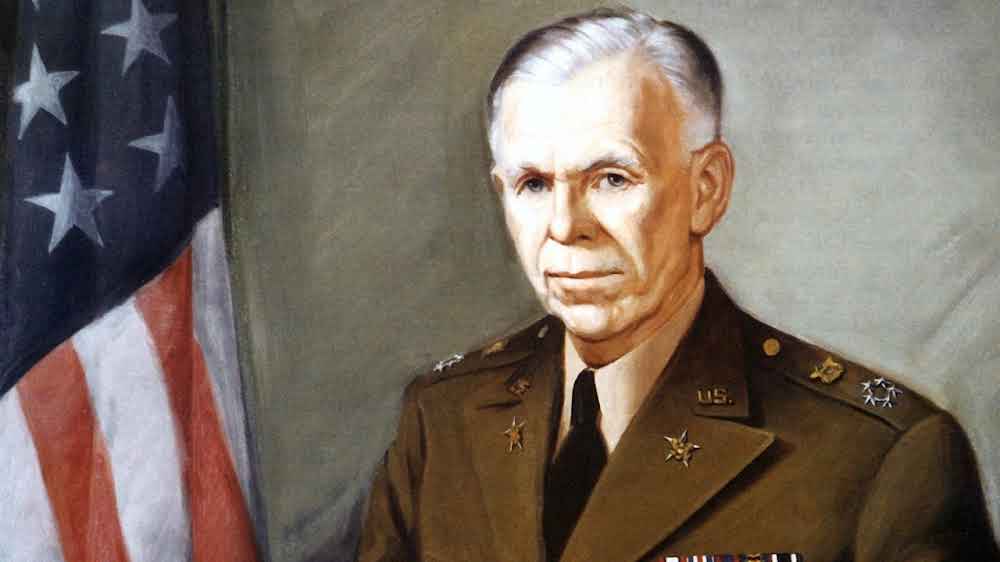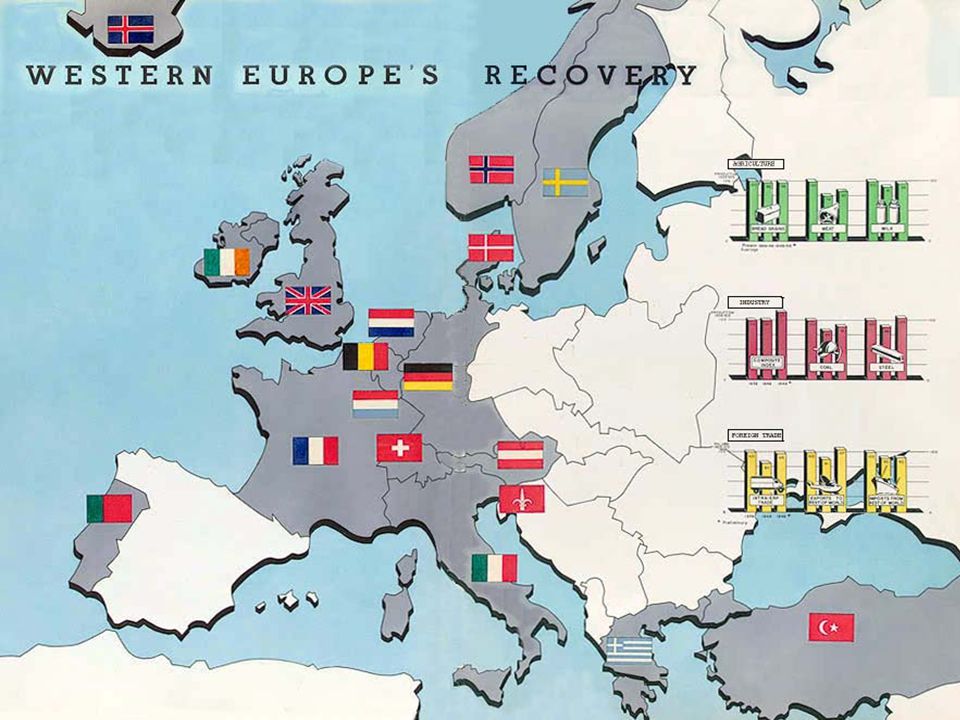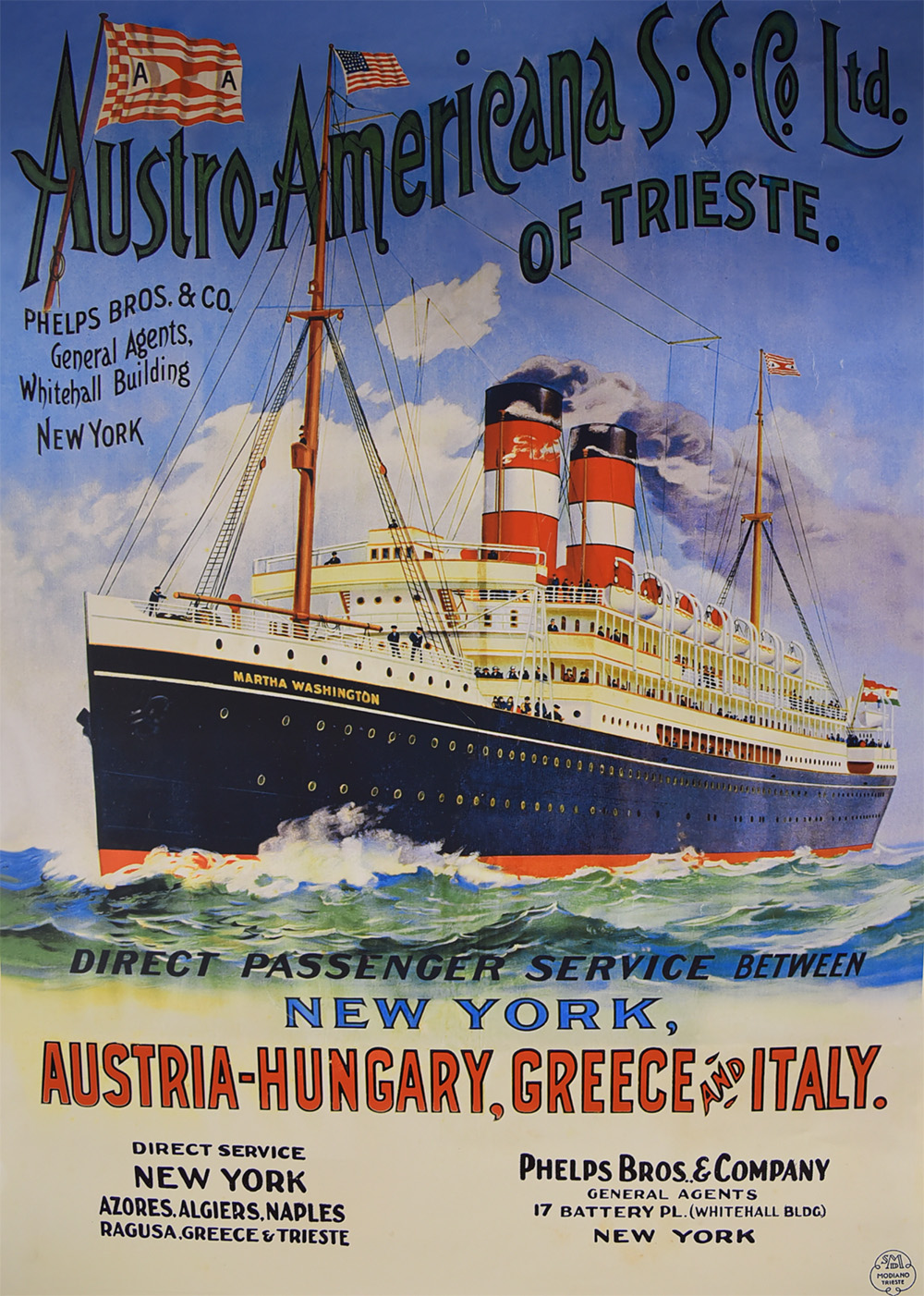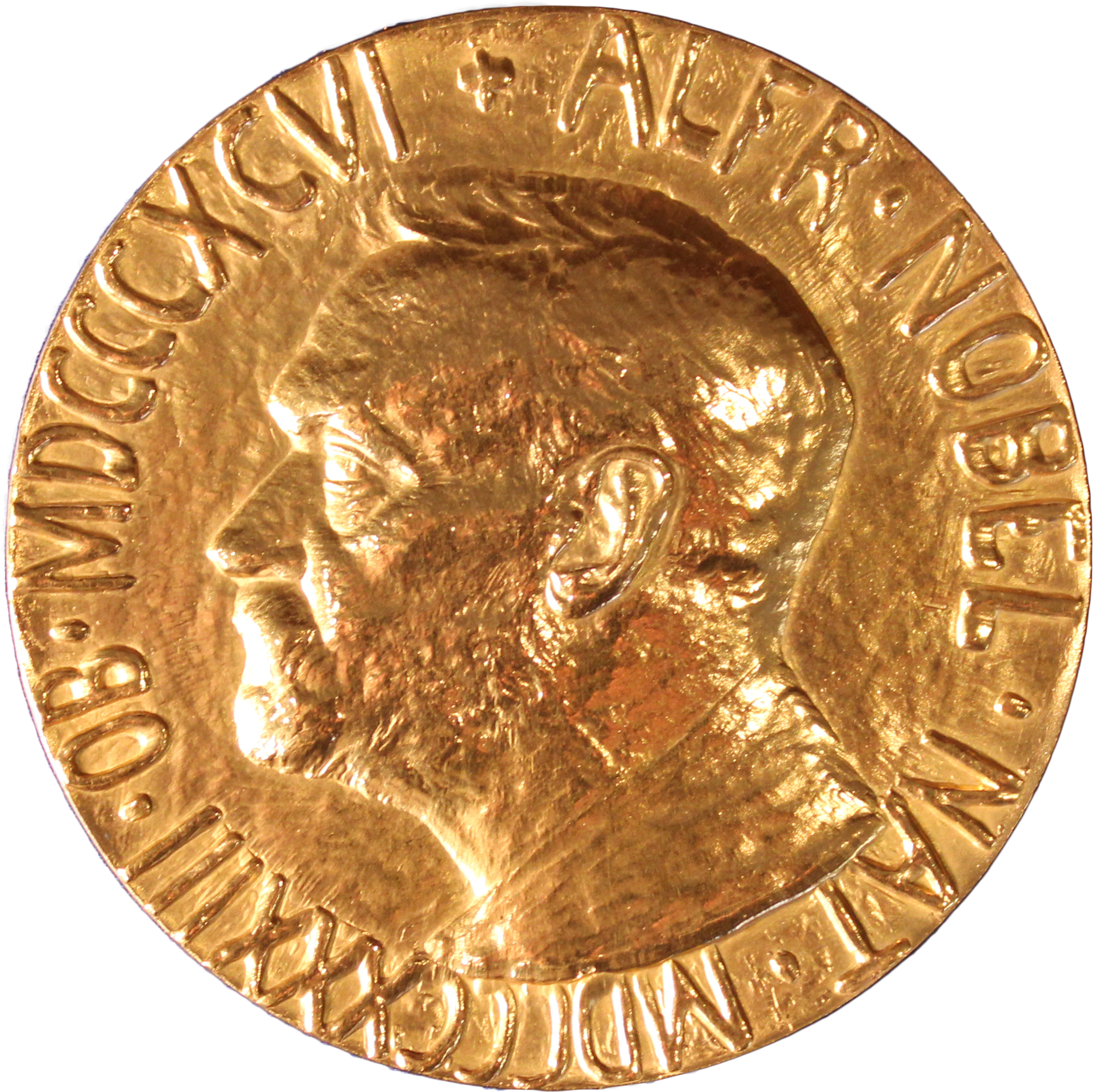The 70th anniversary of General Marshall’s Nobel Peace Prize
The 70th anniversary of the Nobel Peace Prize to George C. Marshall.
The United States and the administration of Trieste.
Analysis by Silvia Verdoljak
«Our policy is directed not against any country or doctrine but against hunger, poverty, desperation and chaos.»
George C. Marshall, Harvard, June 5, 1947.
Trieste, December 30th, 2023. – It’s been seventy years since U.S. general George C. Marshall (1880-1959), “architect” of victory in World War II and of Europe’s rebirth in peace as the Truman Administration’s Secretary of State was awarded the Nobel Peace Prize.
Few Nobel Peace Prizes were as deserved as that awarded in 1953 to George C. Marshall, who is also the only career soldier to ever receive the award.
He received the award on December 10, 1953, «for proposing and supervising the plan for the economic recovery of Europe», and for his efforts to promote world peace and understanding.
Indeed, the ethical and political principles, as well as the impressive funds of the “Marshall Plan” between 1948 and 1952, are the foundations of the reconstruction of 18 European States’ national economies and of the development of Community process in modern, democratic Europe, which otherwise would have succumbed to devastating economic and political chaos.
The debt of gratitude that all of us Europeans have to the US and to George C. Marshall is immense, and it is always present because the aid donated in an extremely harsh time has continued to multiplicate throughout time.
And Trieste, as the 18th Marshall Plan State, has special reasons of gratitude to the United States of America in the past and of hope for the future.
Yet, the vast majority of European public opinion is unaware of this debt of gratitude because the memory of it has been hindered or erased for decades by the propaganda of political formations that are hostile to the US for nationalistic or ideological reasons.
And this problem is more than just historical and moral, because those anti-US propagandas based on disinformation are still hampering political and strategic Euro-Atlantic balances on matters that are as urgent as they are current.
On the occasion of the 70th anniversary of the awarding of the Nobel Peace Prize to George C. Marshall, we consider it duly offering our readers the basic information required to re-establish a correct memory of his efforts and the United States’ own actions for present-day Europe.
Victorious General and Secretary of State.
George Catlett Marshall Jr. was born in 1880 in Uniontown (Pennsylvania). In 1902, after graduating from the Virginia Military Institute, he joined the United States Army, and served as an officer in the Philippine–American War, in World War I and World War II, in the Chinese Civil War and in the Korean War.
From 1939, with the rank of General, he became Army chief of staff and the principal military adviser of President Roosevelt during WWII. In those roles, he reorganized the Army and directed operations on all fronts with such capability and efficiency that President Truman declared him the “architect of victory”.
In 1947, Presidente Truman nominates him Secretary of State, a duty Marshall carries out until 1949, becoming the architect of peace with an ethical and political outlook that goes beyond the new ideological, political, and military fracture of the world into two blocks—western and Soviet—in order to prevent Europe from suffering once again the devastating political and social destabilizations that followed WWI.
June 5th, 1947: the speech at Harvard.
On June 5ᵗʰ, 1947, with an historical speech at Harvard University, George C. Marshall officially invites all European countries, victorious and defeated, including the Soviet bloc, to agree on a program for economic reconstruction with the United States, which would fund it.
With courageous clarity, Marshall expresses the universal humanitarian principles of this offer of help without discriminations: «Our policy is directed not against any country or doctrine but against hunger, poverty, desperation and chaos».
However, after the earliest consultations, the Soviet Union, which during the war had obtained substantial aid from the US, rejected this offer of peace, and it also prevented its satellite States from accepting it.
The invitation was accepted by 18 European States: Austria, Belgium, Denmark, France, Germany (Western), Greece, Iceland, Ireland, Italy, Luxembourg, the Netherlands, Norway, Portugal, Sweden, Switzerland, Trieste, Turkey, the United Kingdom.
The Marshall Plan’s dimension, structure, and impact.
The European Recovery Program – ERP was officially announced by President Harry S. Truman on April 3rd, 1948. On April 16th, the recipient Countries undersigned the agreements establishing the Organisation for European Economic Cooperation – OEEC (now OECD), while Trieste and Western Germany joined on October 16th.
From 1948 to 1952, the United States financed the Marshall Plan’s aid to Western Europe and Turkey with more than $13 billions of public money (about $32 each year for each US citizen). 86% of the aid was used to provide free goods and service (grants) while the remaining 14% consisted of loans granted under highly convenient terms. The amount goes beyond 170 billion current dollars (2023).
The Government of each recipient European State was bound to deposit the value of the goods it had received for free by the United States in a counterpart fund, established in the recipient’s own currency to provide for the State’s recovery and development.
On the other side, the loans were granted in US dollars, were to be repaid in annual installments with a 2.5% interest rate. The repayment period, which started in the second semester of 1956, after the end of the E.R.P., was 35 years. Also, the contract with each receiving State included a waiver clause that allowed for further delay in the payment owing to exceptional economic conditions.
The United States managed the Marshall Plan through the Economic Cooperation Administration (E.C.A.), which was in charge of providing both the grants, thanks to the funds it received from Congress, and the loans, through the Washington Import-Export Bank, as an agency of the US Government.
In 1950, E.C.A. aid was extended also to Yugoslavia, which in 1948 had left the Soviet bloc getting closer to the US with the December 1950 Yugoslav Emergency Relief Assistance Act, and to NATO with the Treaties of Friendship and Collaboration Between Yugoslavia, Greece, and Turkey signed in 1953 and 1954. For those reasons, Yugoslavia received economic and military aid from the US even in later decades.
The three fundamental instruments for peace.
The day after being awarded the Nobel Peace Prize, George C. Marshall held his “Nobel Lecture” at Oslo University, offering his perspective about the instruments needed to establish and maintain peace.
Seventy years later, his December 11th, 1953, speech, also known by the unofficial title of “Essentials for Peace”, is still extremely relevant for the analysis and resolution of all later international conflicts and of the ongoing ones, from the Middle East to Ukraine, from the African continent, to Eastern Asia and the Pacific.
Facing the tension of his time, consisting of the increasing “cold war” tensions in the midst of a conventional and nuclear arm race (the USSR had just announced its hydrogen bomb), General Marshall openly criticizes militarism and the idea that deterrence is in itself enough to maintain peace.
To the strategy of military confrontation, Marshall opposes «a spiritual regeneration to develop goodwill, faith, and understanding among nations» grounded in three essential instruments.
The first fundamental instrument is school education, which must focus on the factors of war, not prejudice. And which prejudice is stronger than national prejudices?
Marshall does not shy away from mentioning a negative example in the US itself, where the Civil War (1861–1865) is described in two completely different manners in books from the North than it is in books from the South.
Indeed, in a democratic society, in which the State’s policy directly depends on decisions made by each citizen, the formation provided to them is decisive.
The solution to overcome national prejudice is, according to Marshall, an objective study of the events, which he regards as more scientific.
The second fundamental instrument for peace provided by Marshall consists of the United State’s national attitudes.
Indeed, the United States is geographically distant from the region of the world scourged by war; however, the American people mainly consist of individuals that come from those regions, where they were oppressed and persecuted.
And this is the reason why the American people, even if they were not directly affected by the horrors and devastations of WWII, rushed to defend with arms Europe’s liberty and to offer material assistance to it right after the conflict.
According to Marshall, those unique characters of the American people bound the United States to serve the cause of peace, becoming the cornerstone of international cooperation. Exactly as is happening today with the “Abraham Accords” to build peace in the Middle East (LINK).
Finally, Marshall identifies the third and last fundamental instrument for peace in the establishment and maintenance of peace to help the millions who live in misery realize their aspiration to build a better life, based on liberty and human rights.
According to Marshall, more favored States have the duty to offer disadvantaged and oppressed people not only material help, but also support through the ideals of democracy, opposing the moral and material uncertainties, distrust, and intolerance that lead to war.
Marshall regarded as necessary «a spiritual regeneration which would reestablish a feeling of good faith among men generally».
At the end of his “Nobel lecture” George G. Marshall explains that the three elements so described are not exhaustive and none can be achieved without effort.
Effort to do good, effort to analyze and research the factors that protect peace and those causing wars, but also a material effort to support those great economic and military undertakings on which depend world equilibrium.
And, in order to achieve those results, as confirmed this year, 2023, by the Secretary of State in office, Antony Blinken, it is fundamental «leading by the power of our example».
Trieste, the 18th Marshall Plan State.
The direct, special bonds between Trieste and the United States of America date back to the American War of Independence (1775–1783).
From 1382, Trieste was an autonomous city of the Austrian Crown (LINK) and, from 1719, it became also its prosperous Free Port, with global trade relations.
The people of Trieste, already multiethnic and of many faiths, increased even more when Holy Roman Emperor Joseph II issued the Edicts of Toleration (1781 – 1785), granting freedom of belief and faith to Jews, non-Catholic or reformed Christians (Orthodox Christians, Evangelicals, Calvinists) and to secular orders (Freemasons).
Count Charles-Albert de Moré, aide-de-camp of Lafayette, in a letter addressed to his brother described that Austrian Trieste as «the Philadelphia of Europe, the typical pioneer city of our old continent, the port in which castaways find shelter and a new, promising life», and the Triestines as «true pioneers […] flocking from the most diverse of lands in order to make a different life for themselves».
Triestine merchants, together with merchants from the Austrian Netherlands (the present-day Belgium), supported before the Austrian Government the cause of the American Revolution, even proposing trade agreements to support it.
In 1797, on President Washington’s order, the United States intensified its commercial, political, and cultural ties with Trieste, and opened its second European diplomatic representation there.
Maritime traffic between the US and Trieste intensified to the point that on February 22, 1814 the Austrian city celebrated President’s Day as 14 US ships were moored in the port.
In the early 20th century, the port of Trieste had passenger lines connecting it with the main US ports, run by Austrian, American, and German shippers, as well as by the “Austro-Americana” a company that offered a fast, weekly Trieste-New York line.
After World War II, Trieste was liberated by the Allied Forces on May 1st, 1945, and, from June 12th, it was under the care of a British-US Allied Military Government.
With their third proclamation, issued on July 3rd, 1945, the new British-US Authorities did also take care to repeal the anti-Jewish legislation of the Kingdom of Italy.
The Treaty of Peace of February 10, 1947 between the Allied and Associated Powers and Italy has established Trieste as a new sovereign State with an international Free Port, the Free Territory of Trieste, placed under the direct protection of the United Nations Security Council, and entrusted to a Provisional Regime of Government.
On September 15th, 1947, at the coming into force of the Peace Treaty, the mandate of provisional Government was entrusted, on the UNSC’s behalf, to the existing British-US Allied Military Government, which therefore became the first Government of State of the present-day Free Territory of Trieste.
This is why Trieste was soon included among the European Member State of the new pre-EU and international organizations (OEEC, EPU, ECMT, ICEM, Interpol, and the World Health Organization), as well as receiving the support of the US with the Marshall Plan.
Until 1951, the Marshall Plan provided Trieste and the Triestines with 37.5 million dollars, (worth more than $ 400 million in 2023), equal to $ 126 pro capita (worth about $ 1400 today). Trieste is the second State for aid pro capita after Iceland.
The Marshall Plan aid was invested in the development of shipyards, of industries, of railroads, and the international Free Port, creating jobs and improving welfare, lifting the war-thorn city and its economy.
Trieste, however, did more than just receiving aid; with its new international Free Port it played an active role in its Mitteleuropean Hinterland’s reconstruction.
In 1950, the international Free Port of the Free Territory of Trieste welcomed the four millionth ton. of ERP aid, directed to Austria (LINK). Triestine refineries did also process crude oil, providing Austria with petrol.
In 1954, the primary administering British and US Governments withdrew their troops, sub-entrusting to the Italian Government (not to the Italian State) Trieste’s temporary civil administration, and its military defense to NATO.
The sub-mandate of temporary civil administration entrusted to the Italian Government includes the correct management of the international Free Port of Trieste, at service of ships and freight from all States, without discrimination.
The sub-mandate of military defense assigned to NATO includes respect for the neutrality and demilitarization of the present-day Free Territory of Trieste.
To date (2023), both the Italian Government and NATO are exercising their respective sub-mandates, for the correct enforcement of which they are responsible to the people of the Triestine State, to the primary administering British and US Governments, and, with respect to the international Free Port, to the whole International Community of States.
The Governments of the United States and of the United Kingdom are therefore responsible to Trieste, to all other States, and to the United Nations Security Council for matters relating to the correct enforcement of the mandates they have sub-entrusted to the Italian Government and to NATO.
In particular, these supervisory responsibilities regard the fact that the Italian Government’s bodies in charge of the temporary civil administration breach their sub-mandate and the relating international obligations, simulating that the administered State does not exist and that Trieste and its port belong to the Italian State.
As is known, this question is the subject of an ongoing, complex legal dispute initiated versus the Italian Government by the International Provisional Representative of the Free Territory of Trieste (LINK) which, for this purpose, acts as a subject of international law.
Yet, it is evident that the principles expressed by George C. Marshall in 1953 should also apply to the settlement of this dispute, through the legitimate and duly active vigilance of the United States of America on the conduction of the sub-mandate of temporary civil administration of the 18th European Marshall Plan State and on the management of its strategic international Free Port.
It is in this light that Trieste, the 18th European Marshall Plan State, has good reasons to owe the United States special gratitude for the past as well as hope for the future.
Since May 1964, General Marshall’s Nobel Peace Prize is entrusted by his family to the George C. Marshall Foundation. The Marshall Foundation permanently displays the Prize at its Lexington building (VA).
© 30 Dicembre 2023



















